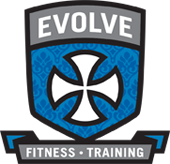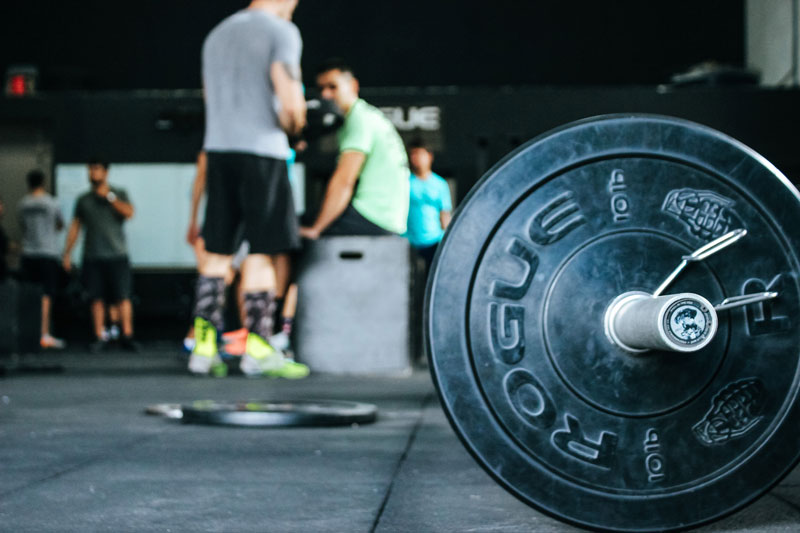As we move into December, following workout and weight loss goals becomes a difficult task. Not only has the temperature turned for those of us in cold-weather states – encouraging near hibernation and heartier foods – but a new holiday season full of sugar and sweets has just begun. You may be tempted to let the month go and tie your fitness goals into a new set of News Year’s resolutions. But don’t buy into it. Millions of people make their New Year’s resolutions on January 1st and fewer than 50% of those people are still following those goals by June 1st.
Be part of the half that does.
Maintaining the progress you’ve made throughout the year – or even starting fresh – can be simple. And to help we’ve compiled a broken-down list of tips to assist you in your health related goals, whatever they may be.
I. Food
II. Exercise
III. Tracking
I. Food: Plan, Portion, and Swap
Meal Prep: One of the easiest ways to maintain a healthy diet and calorie intake is to plan and prepare your meals beforehand. This takes the guess work out of eating and makes meeting your fitness goals much easier. A lot of times people turn to unhealthy options because they don’t have time and need something easy. This leads to takeout and processed foods that pack on the calories. Preparing a meal or two for everyday of the week can help eliminate this process.
- And if you’re not sure where to start, there are a multitude of meal prep guides online. You can even try MealPrepSunday, a subreddit for people who want meal prep ideas or new recipes each week.
Portion Control: Since 1970, Americans have ingested 20-25% more calories each meal due to growing portion sizes. This is due to an increase in food availability and a decrease in cost. However, controlling how much you put on your plate both at home and when out can be simple. Here’s how:
- Ask for a to-go box when eating out. Then, put half of your meal directly into the box to take home.
- Focus on proteins. Meat, fish, or plant-based food such as tofu, will fill help fill you up without the excess calories you’ll get from carbohydrates.
- Replace starches like potatoes or pasta with vegetables.
- Utilize smaller plates at home. As the old adage attests – people eat with their eyes. Using a smaller plate will trick your brain into thinking you have more food, which will help prevent overeating.
- Stay away from processed foods. A good rule of thumb is to stock up on ingredients that don’t come with a nutrition label.
- When plating, divide your portions. For example, make half the plate vegetables, 2/3rds protein, and 1/3rd carbs.
- Have your family get up and serve themselves. Do not leave the food on the table, or everyone will eat more.
- When eating, refrain from watching TV, using electronics or reading a magazine or book.
Swap: Another easy way to start or keep improving your diet is to make healthier food swaps. To do this, go for leaner options or non-processed elements in a dish. For example, instead of pre-packaged non-fat fruit yogurts, try a Greek yogurt topped with fresh fruit. Or replace heavy starches like pizza dough or pasta with vegetable substitutes like cauliflower crust and zucchini noodles
II. Exercise: Make Friends and Set Goals
Make Friends: One of the most difficult things about staying on top of your fitness goals is holding yourself accountable. When you’re only responsible for yourself, it’s easy to make excuses and push things off. However, if you have someone else – or a group of someone elses – involved, it becomes easier. To spread the responsibility:
- Join a workout class. If you’re familiar with the panic of missing a class in school, the feeling of missing a workout class can be similar. Knowing a group of people may notice your absence can be enough peer pressure to get you going every week. Classes like yoga or boot camp courses are also a great way to make sure you’re getting the most out of every workout.
- Get a personal trainer: If you thought the peer pressure of a group workout was bad, being beholden to a personal trainer can be even worse! But a personal trainer can also be your best friend. Not only do they work hard to personalize exercises and diets to your specific needs, but they’re also a great motivator when you feel like you can’t keep going.
- Partake in a forum. Using the internet to keep you on track may not be the first thing many people think of when they’re looking for fitness help. However, there are many sites online like Reddit’s r/loseit that not only provide helpful guides, but are full of people on similar journeys willing to answer questions and give support.
Set achievable fitness goals: While you probably have large goals like “lose 40 lbs,” it’s also important to set smaller goals to help keep you motivated and on track – especially goals you can see. This helps combat the de-motivation that comes when your weight plateaus or you aren’t seeing any change in inches. So instead of weight specific items, set a goal for how many sit-up reps you can do or how many miles you can run before stopping. As you continuously workout, these numbers are likely to rise and you will feel motivated because of it.
III. Measuring Success: Track Your Changes
Keep a journal or maintain a fitness app: While starting a food journal can be painful, it’s a great way to hold yourself accountable and keep you on the right path. It’s also a great reminder of why you’re working out and eating right in the first place. Being able to see where you’ve come from and what’s changed will allow you to see your progress in print, even if you can’t see it in person yet.
Weigh yourself regularly: Though you may dread the scale, weighing yourself once a week, biweekly, or once a month can be an asset to your continued fitness goals. Just make sure you aren’t weighing yourself TOO frequently. Weight tends to fluctuate, and it does so differently for different people, so take that into account whenever you step on the scale. Some great ways to avoid any scale related mishaps are to:
- Keep a record of your own body fluctuations so you know what to expect.
- Weigh yourself at the same time of day, wearing the same thing, on the same scale each time.
- Don’t weigh yourself after eating or drinking – or at the end of the day.
Reward achievements: While it’s important to treat yourself when you’ve met a fitness goal, it’s also important to make sure that reward doesn’t mess up your fitness routine. It’s usually most tempting for people to meet every achievement with food, but try something non-edible instead. For example, try putting a dollar in a jar for every workout or day you stayed under your calorie count. Or reward yourself with a new piece of clothing, game, or book when you meet those big goals.
- Cheat days are fine – and necessary to keep you mentally on track – just don’t give one to yourself every week!
In the end, everyone is different and it’s important to remember that your fitness journey won’t be the exact same as anyone else’s. So cut yourself some slack and be kind. Even if you fall of the wagon, you can always get back on again.
And if you need it, we’re always here to help.




